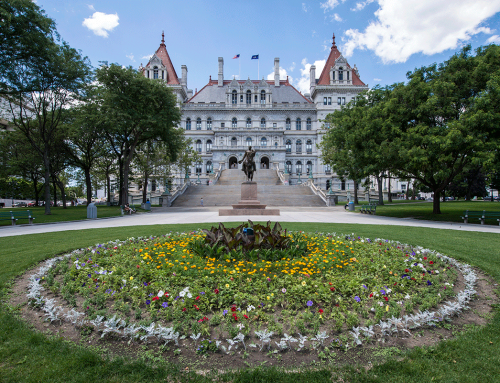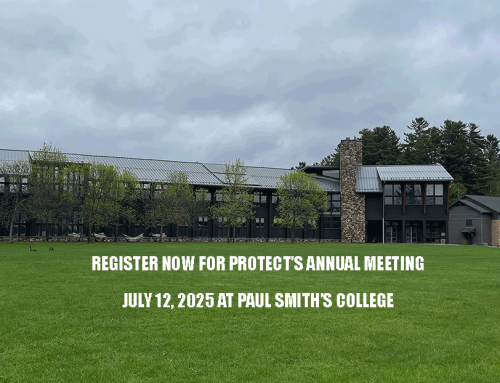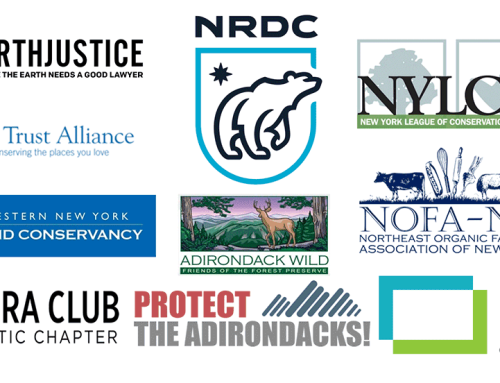Good news is out today for those that appreciate the Wilderness parts of the Forest Preserve in the Adirondack Park and who think that there should be places where motors of all kinds are not allowed: former Town of Warrensburg Supervisor, long-time anti-Wilderness advocate, big pro-motors enthusiast (especially ATVs and floatplanes) Maynard Baker has ended his most recent lawsuit against the State of New York.
Baker’s latest anti-Wilderness lawsuit sought to use the issue of floatplane access to various Forest Preserve lakes that had been closed off in recent decades to allege discrimination by the state against physically disabled individuals.
Baker’s lawsuit was bogus. This was simply his most recent attempt to rollback Wilderness management in the Adirondack Park. Most telling is the statement from the NYS Attorney General’s lawyer about his case “This is not a settlement. It is dismissal with prejudice.” That means Baker cannot seek to start this over. His problem is not money, as he’s stating to the press. His problem is a weak lawsuit.
The Adirondack Daily Enterprise wrote:
“The lawsuit was filed in 2010 against the state Department of Environmental Conservation and Adirondack Park Agency by Baker and five other disabled men who claim the state’s ban on the use of floatplanes, motorized vehicles and bicycles to access a list of 38 lakes and ponds in wilderness, primitive and canoe areas – including Lake Lila, Clear Pond, Round Pond and Silver Lake – violates the Americans with Disabilities Act.”
“The lawsuit sought a permanent injunction prohibiting the state from restricting floatplane access to the lakes. Baker and the other plaintiffs also sought an award of attorney fees and costs incurred in bringing the complaint.”
Over the years a number of lakes in the Park saw prohibitions of floatplane and motor boat use where floatplane use had historically occurred. The passage of the Adirondack Park Agency Act, which created the State Land Master Plan and the formal classification and management for Forest Preserve lands, resulted in the classification of a number of tracts as Wilderness and motorized access was ended. Lands that were privately owned, where floatplane use had occurred, also saw motorized uses ended when these lands were purchased by the State of New York and classified as Wilderness. Baker and others have been using various tactics to try and rollback Wilderness lands management for years, often under the guise of disabled access.
Baker was a party, with Ted Galusha of Warrensburg and others, in a federal lawsuit against the APA and DEC in the late 1990s. The predecessor organizations to Protect the Adirondacks intervened in this case with other environmental groups and helped structure a settlement. This case was quickly narrowed to focus specifically on genuine disabled access as guaranteed under the Americans with Disabilities Act. Real activists and policy leaders from the disabled community also participated in this effort, which marginalized Baker’s agenda.
In that case, access to Wilderness, Primitive and Canoe areas was taken off the table by the courts. The focus was on how to provide disabled access to the Forest Preserve in Wild Forest and Intensive Use areas. Governor Pataki convened a working group headed up by the DEC. A DEC Commissioner’s Policy was approved and a variety of new opportunities were created for disabled access to the Forest Preserve with appropriate accommodations. Planning for disabled access is now a core part of the Unit Management Planning process, which is a good thing. John Dillon Park in Long Lake, jointly managed by Paul Smith’s College, is the showcase for such opportunities, but there are dozens of other state facilities throughout the Adirondack Park designed for use by people with disabilities.
Any day when a Maynard Baker lawsuit is terminated is a good day for the Adirondack Park.





